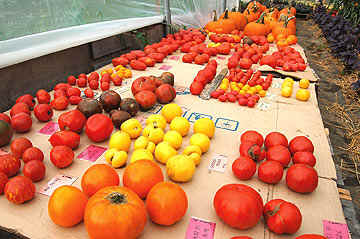Thursday night’s temperatures have confirmed the winter of 2014 is not over. This year’s cold days and freezing nights have taken a toll on power bills, auto batteries, and the mosquitoes.
Still there is indication that spring will soon be coming. The most tangible evidence is arriving in north Florida mailboxes almost daily.
Garden catalogs from every part of the nation are finding their way into many area homes. Their pages promise the buyer the potential for legendary success and the envy of their friends and neighbors.
After all, who can resist the full color beauty of giant flowers, large luscious fruit and vegetables which are sure to win a prize at the fair? There is not a runt, reject or cull in all the pages of these publications offering the mortal version of horticultural heaven.
Before ordering, the would-be gardener should consider several factors to increase the likelihood of a positive gardening experience. A failure will waste not only funds, but also much time and hard work and may introduce a long-term problem or two.
Cultivar selection for a tree, shrub, vegetable or fruit is critically important to producing the desired results. While a specific plant cultivar may grow and produce in one environment, it may not do so in all situations.
A common example of this problem is grape vines offered. Only muscadine grapes will grow and produce locally because Pierce’s disease kills other varieties.
Carefully examine the growing zones recommended by the catalog for specific cultivars. Check with fellow gardeners and the UF/IFAS Extension Office to see if they have any information or experience with any cultivars under consideration.
Heirloom varieties are especially sensitive to the variances in growing conditions. While they offer unusual and sometimes unique taste and culinary traits or landscaping characteristics, these antique varieties can be a challenge to grow.
Their genetic potential can make a consistent yield, especially for the novice growers, a real effort. Also, as an open pollinator variety, the results can be inconsistent.
Another question for the catalog company customer is new or untried plants varieties. Some of these plants are patented and few or no trials have been performed with them in north Florida’s growing zone.
Caution should be used when ordering these seed or plants. Being the first in North Florida to cultivate a new variety may require a large commitment of time and resources, and may produce only a large disappointment.
Check with fellow gardeners, local nurseries and your UF/IFAS Extension Office for available information on these new or patented varieties. It may save much wasted motion.
Lastly, be sure the plant or seeds under consideration do not have the potential as exotic invasive pests. As hard as this may be to believe, this does occur.
Some catalog vendors will advise buyers in the ordering instructions or at the time of ordering. Either way, the purchaser should check to verify the plant ordered does not have the potential to escape control and damage the environment.
- Get Your Trees Ready For The Winds of October - October 8, 2019
- Feeding Caterpillars Aren’t Always Cute - August 10, 2018
- Wild Azaleas - May 23, 2018

